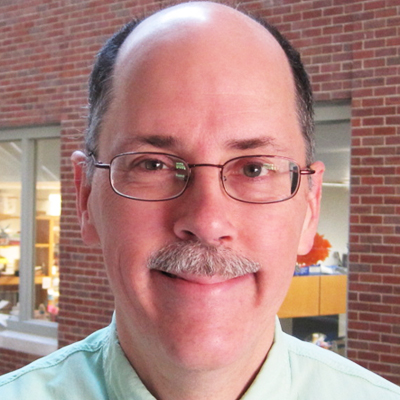Unraveling defects in membrane proteins that cause disease
Whether a protein folds correctly and can fulfill its job in the human body can determine whether an individual will be healthy or will suffer from disease. Therefore, it is necessary to understand the difference between healthy proteins and those that are defective due to mutations or other disease-promoting factors. Dr. Charles Sanders of Vanderbilt University focuses on discovering how defects in a major class of proteins--membrane proteins--result in diseases, specifically Alzheimer's disease, Charcot-Marie-Tooth disease, kidney fibrosis, and heart rhythm disorders. His lab uses chemical and physical methods to compare and contrast membrane proteins under both healthy and disease conditions. By understanding how defects in specific membrane proteins result in various diseases, knowledge-based strategies to treat these diseases can be developed.
Disease-related human membrane proteins are among the most difficult to study of the 22,000 different human proteins. Dr. Sanders has dedicated over 20 years of research to these proteins. This experience enables him and his team to tackle membrane protein-disease relationships. Their work provides a bridge between fundamental biochemical and biophysical studies of isolated proteins and studies of proteins in their native cellular environment. Perhaps as important as his research, Dr. Sanders remarks that educating tomorrow's scientists is essential as he is "training lab members how to conduct themselves as scientists and how to choose problems that matter." Placing an emphasis on diversity, curiosity, and collaboration, Dr. Sanders' laboratory produces not only rigorous medically-translatable research but also scientists who will participate in making the world a better place.
Current research includes:
-
Charcot-Marie-Tooth Disease (CMTD): Mutations in peripheral myelin protein 22 results in misfolding leading to CMTD, the most common inherited disorder of the peripheral nervous system. Dr. Sanders is studying how such mutations trigger misfolding and disease. His lab is currently the only in the world tackling this protein at the biochemical and biophysical levels despite the fact that roughly 1:3500 humans suffer from CMTD.
-
Heart Disease: Dr. Sanders and his team are examining the folding and regulation of a human potassium channel involved in triggering heartbeat. Mutations in this channel lead to sometimes deadly heart rhythm defects (long QT syndrome and atrial fibrillation). Dr. Sanders is dedicated to unraveling how the varying defects in this protein found in different patients can be used as the basis for personalized medical treatment.
-
Alzheimer's Disease: It is generally believed that the amyloid-beta polypeptides trigger Alzheimer's disease. The amyloid-beta polypeptides are derived from the transmembrane amyloid precursor protein, which Dr. Sanders is studying to determine how production of these dangerous polypeptides can be reduced to prevent Alzheimer's disease. Dr. Sanders' lab was the first to tackle the structure of the immediate precursor membrane protein from which the amyloid-beta polypeptide is derived.
-
Kidney Fibrosis: Chronic kidney disease (CKD) is a common cause of death, particularly for patients with type 2 diabetes. Dr. Sanders and his team study a family of membrane proteins, the integrins, which play a central role in kidney fibrosis that occurs in CKD.

Bio
Dr. Sanders' original interest in science was inspired by the wondrous spectacle of the Apollo space program and by backyard astronomy. His college training was in chemistry and math, but his interests migrated towards biochemistry, an area in which he completed his training in 1991. Following a decade of pursuing "basic science" membrane biochemistry, it became clear that his lab had reached a stage where it was time to pursue research that is directly disease relevant. Dr. Sanders and his team are fascinated by the challenge of discovering the underlying molecular causes of human disease and hope that their work accelerates progress towards disease prevention, treatment, and cures.
Dr. Sanders grew up in Columbus, Ohio as the son of a Western Electric engineer and a coal miner's daughter (now an Alzheimer's primary caregiver). In his free time at home in Nashville, he enjoys spending time with his family, listening to music, following college football, and planting trees.

